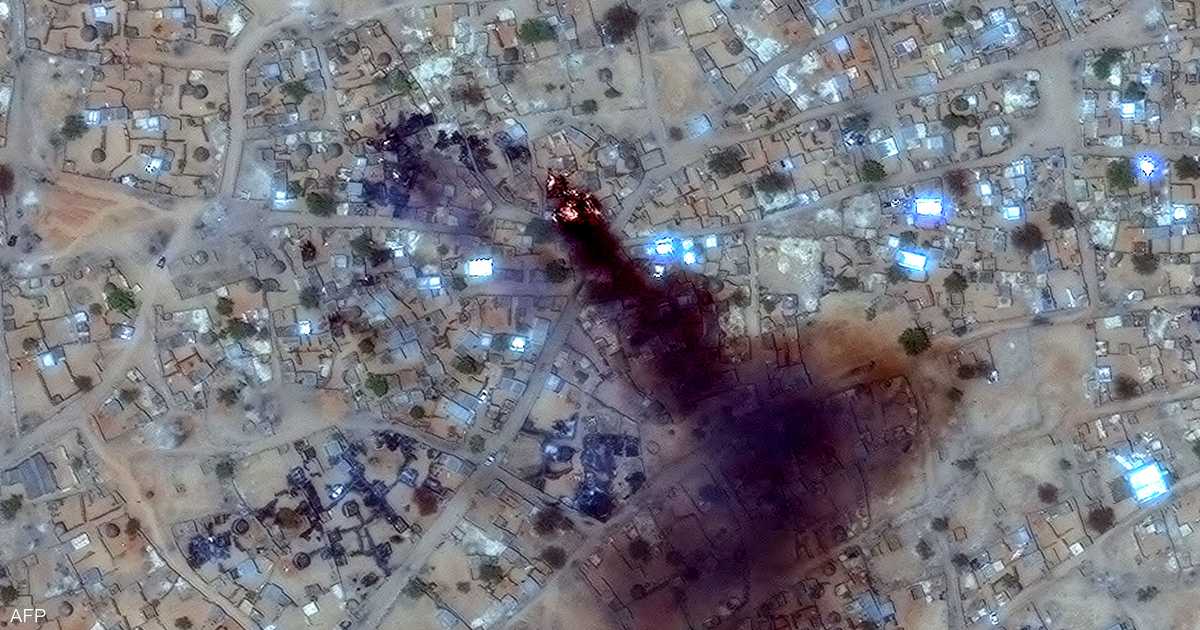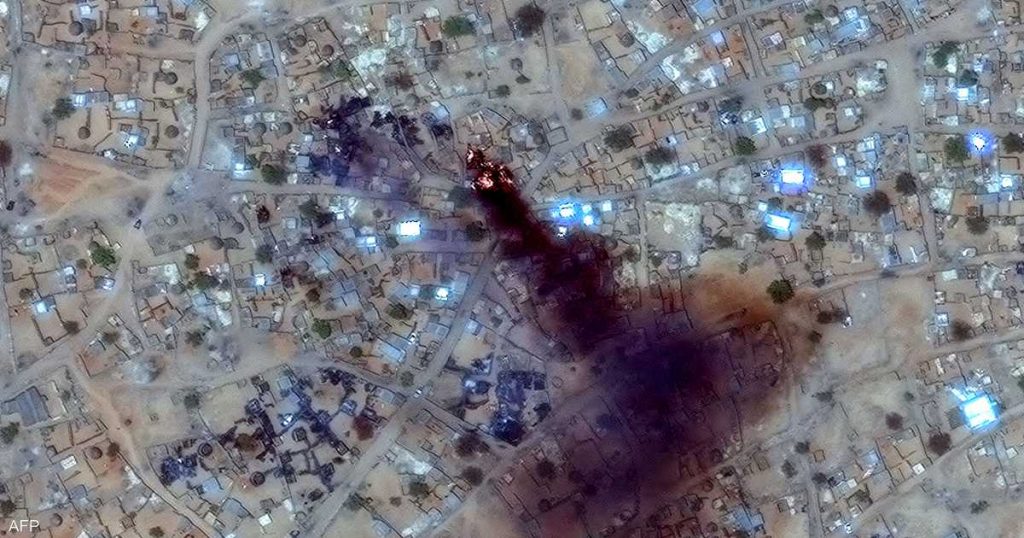The stark contradiction between statements from two Sudanese government bodies—the Higher Council for Environment and the Ministry of Health—regarding chemical contamination in the capital Khartoum has fueled fears that “denial” may worsen the catastrophic effects on residents’ lives amid a widespread outbreak of unusual diseases.
Following a statement by the Higher Council for Environment published by the official news agency confirming chemical contamination in specific areas of the capital, the Ministry of Health issued a conflicting statement denying any chemical pollution.
This comes amid recurring reports warning that the capital is “unfit for living” due to allegations involving radioactive contamination, use of chemical weapons, and environmental degradation.
Since early 2025, specialists have linked several health and environmental phenomena to chemical contamination, especially in Khartoum, central Sudan, and North Darfur.
In May, the United States stated it relies on concrete evidence confirming the army’s use of chemical weapons during the ongoing war in the country since mid-April 2023.
Government Contradiction
The Higher Council for Environment and Natural Resources, represented by Dr. Mona Ali Mohamed, the council’s secretary-general, confirmed chemical contamination in Khartoum state, attributing it to Rapid Support Forces strikes on industrial areas, stressing the need for joint efforts to find solutions.
The council explained that “chemical contamination is common due to the presence of these substances in many products at varying levels, which can cause pollution, requiring intensive awareness at national, state, local, and individual levels.”
However, the Ministry of Health stated: “Data from national competent authorities concluded there is no scientific evidence supporting claims of radioactive contamination due to chemical weapons use, with official measurements and reports showing the general situation does not pose a threat to public health.”
Escalating Debate
Amid the escalating debate over chemical contamination in the capital and other parts of the country, indicators of new phenomena raising further concerns are increasing.
After a chlorine leak from a storage facility in East Khartoum sparked significant controversy, a local group said the leak dates back to the period when Rapid Support Forces controlled the area. The group noted that the intelligence service and Ministry of Health conducted a joint investigation concluding “no environmental or health risks threatening residents’ lives.” However, posts on Facebook and other social media platforms reported large numbers of residents suffering illnesses linked to the leak.
According to journalist Imad Onsa, these reports indicate the reality of a leak harmful to human life, confirming the need for a technical investigation by international specialized bodies. He added: “While appreciating all differing statements, the issue is not just a chlorine leak; there are suspicions about the presence of mustard gas and other gases considered internationally banned warfare tools.”
Preliminary information indicates chemical contamination in about 30 residential and administrative neighborhoods between the Republican Palace and the University of Khartoum to the north, extending to the southern boundaries of Khartoum East neighborhoods, including Al-Amarat, Al-Taif, Al-Riyadh, Al-Mamoura, and Arkaweet, as well as several neighborhoods in Omdurman city northwest of Khartoum.
Wide Scope
In June, local residents in North Darfur posted photos showing burnt and swollen corpses, water tanks turning pink, and a shell labeled as containing gas. Residents linked these phenomena to repeated airstrikes on the area, which sparked accusations of using explosives containing toxic substances.
In central Sudan, fears grew with the appearance of strange diseases among residents and mass deaths of rats and rodents amid reports of chemical weapons use during battles in the Jebel Moyah area near Sennar late last year.
Azza Abdel Majid Mardas, a member of the British Royal Society for Public Health, warns that the scientific explanation for the mass death of rats is linked either to toxic chemicals, epidemics, or environmental changes, considering it an environmental and health alarm requiring urgent response.
A recent monitoring report including testimonies from residents in the Sennar area of central Sudan indicated damage on various life and health levels, prompting many residents to leave the area amid rising deaths and disease spread.
Rehab Mubarak, a member of the executive office of the “Emergency Lawyers” group that prepared the report, said that clear signs of chemical weapons use have caused widespread fear among civilians.
Legal Consequences
International law clearly prohibits the use of chemical weapons, according to the 1925 Geneva Protocol and the 1993 Chemical Weapons Convention, which bans their development, production, storage, transfer, and destruction.
International law emphasizes combating impunity for chemical weapons use. According to international legal texts, sanctions are imposed on individuals and entities involved in chemical weapons attacks.
In this context, Ismail Madawi, a former legal advisor at the United Nations, says the use of chemical weapons in Sudan will not be a mere “ordinary violation,” as it opens the door wide to a new and dangerous phase, where the war shifts from an internal conflict to a cross-border humanitarian disaster.
He explained to Sky News Arabia: “It will have consequences and open the door for direct international criminal accountability against leaders, with severe sanctions that may include armed international intervention.”
He added: “Anyone who thinks they can end the war with chemical weapons is putting their neck in the noose of the International Criminal Court and making their case a global security issue.”
Madawi points out that the widespread or systematic use of chemical weapons against civilians constitutes a crime against humanity under Article 7 of the Rome Statute of the International Criminal Court, and also falls under genocide crimes if used with the intent to destroy, in whole or in part, an ethnic, religious, or national group, according to the genocide definition under Article 6 of the Rome Statute.














Recommended for you
Exhibition City Completes About 80% of Preparations for the Damascus International Fair Launch
Talib Al-Rifai Chronicles Kuwaiti Art Heritage in "Doukhi.. Tasaseem Al-Saba"
Unified Admission Applications Start Tuesday with 640 Students to be Accepted in Medicine
Egypt Post: We Have Over 10 Million Customers in Savings Accounts and Offer Daily, Monthly, and Annual Returns
His Highness Sheikh Isa bin Salman bin Hamad Al Khalifa Receives the United States Ambassador to the Kingdom of Bahrain
Al-Jaghbeer: The Industrial Sector Leads Economic Growth